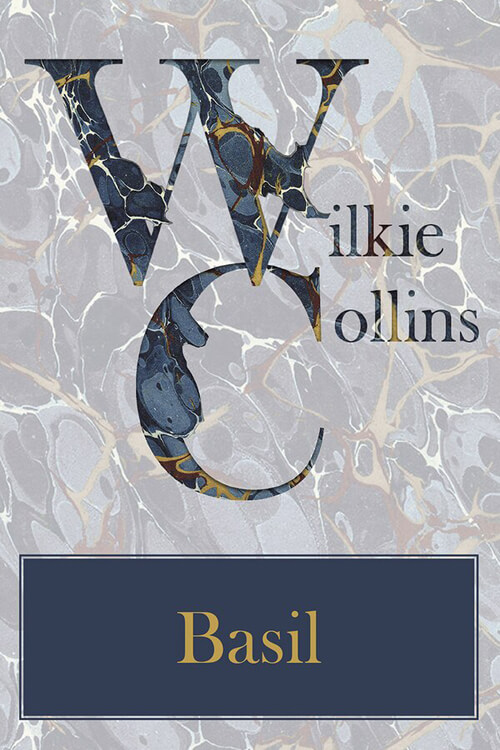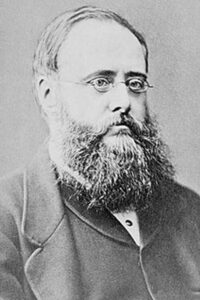
Basil A Story of Modern Life
It has long been one of my pleasantest anticipations to look forward to the time when I might offer to you, my old and dear friend, some such acknowledgment of the value I place on your affection for me and of my grateful sense of the many acts of kindness by which that affection has been proved, as I now gladly offer in this place. In dedicating the present work to you, I fulfill, therefore, a purpose which, for some time past, I have sincerely desired to achieve; and, more than that, I gain for myself the satisfaction of knowing that there is one page, at least, of my book, on which I shall always look with unalloyed pleasure—the page that bears your name.
I have found the main event from which this story springs from a fact within my knowledge. In afterward shaping the course of the narrative thus suggested, I have guided it, as often as I could, where I knew by my own experience, or by experience related to me by others, that it would touch on something genuine and authentic in its progress. My idea was that the more of the Actual I could garner up as a text to speak from, the more confident I might feel of the genuineness and value of the Ideal, which was sure to spring out of it. Fancy and imagination, grace and beauty, all those qualities that are part of the work of art, and what scent and color are to the flower, can only grow towards heaven by taking root in the earth. Is not the noblest poetry of prose fiction the poetry of everyday truth?
Directing my characters and my story towards the light of Reality wherever I could find it, I have not hesitated to violate some of the conventionalities of sentimental fiction. For instance, the first love meeting of two of the personages in this book occurs (where the genuine love meeting from which it is drawn occurred) in the very last place and under the very last circumstances that the deceptions of sentimental writing would sanction. Will my lovers excite ridicule instead of interest because I have genuinely represented them as seeing each other where hundreds of other lovers have first seen each other, as hundreds of people readily admit when they read the passage to which I refer? I am confident enough to think not.
So again, in certain parts of this book where I have attempted to excite the suspense or pity of the reader, I have admitted as perfectly fit accessories to the scene the most ordinary street sounds that could be heard and the most ordinary street events that could occur, at the time and in the place represented—believing that by adding to truth, they were adding to tragedy—adding by all the force of fair contrast—adding as no artifices of mere writing possibly could add, let them be ever so cunningly introduced by ever so crafty a hand.
Allow me to dwell a moment longer on these pages’ stories.
Believing that the Novel and the Play are twin sisters in the family of Fiction, that the one is a drama narrated, as the other is a drama acted, and that all the solid and deep emotions which the Play-writer is privileged to excite, the Novel-writer is privileged to excite also, I have not thought it either sensible or necessary, while adhering to realities, to adhere to every-day realities only. In other words, I have not stooped so low as to assure myself of the reader’s belief in the probability of my story by never once calling on him to exercise his faith. Those extraordinary accidents and events that happen to few men seemed to me to be as legitimate materials for fiction to work with—when there was a suitable object in using them—as the ordinary accidents and events that may, and do, happen to us all. By appealing to genuine sources of interest within the reader’s own experience, I could undoubtedly gain his attention, to begin with. Still, it would be only by appealing to other sources (as genuine in their way) beyond his own experience that I could hope to fix his interest and excite his suspense, to occupy his deeper feelings, or to stir his nobler thoughts.
Read or download Book
Wilkie Collins
William Wilkie Collins (8 January 1824 – 23 September 1889) was an English novelist and playwright known especially for The Woman in White (1859), a mystery novel and early sensation novel, and for The Moonstone (1868), which established many of the ground rules of the modern detective novel and is also perhaps the earliest clear example of the police procedural genre.
Born to the London painter William Collins and his wife, Harriet Geddes, he moved with them to Italy when he was twelve, living there and in France for two years, learning both Italian and French. He worked initially as a tea merchant. After his first novel, Antonina, was published in 1850, Collins met Charles Dickens, who became his friend and mentor. Some of Collins’ work appeared in Dickens’ journals Household Words and All the Year Round. They also collaborated on drama and fiction. Collins gained financial stability and an international following by the 1860s. Still, in the 1870s and 1880s, after becoming addicted to the opium he took for his gout, the quality of both his health and his writing declined.
Collins criticized the institution of marriage. He had relationships with two women: widow Caroline Graves – living with her for most of his life, treating her daughter as his – and the younger Martha Rudd, with whom he had three children.
Early life
Collins was born at 11 New Cavendish Street, London, the son of William Collins, a well-known Royal Academician landscape painter, and his wife, Harriet Geddes. Named after his father, he soon became known by his middle name, which honored his godfather, the painter David Wilkie. The family moved to Pond Street, Hampstead, in 1826. In 1828, Collins’s brother, Charles Allston Collins, was born. Between 1829 and 1830, the Collins family moved twice, first to Hampstead Square and then to Porchester Terrace, Bayswater. Wilkie and Charles received their early education from their mother at home. The Collins family was deeply religious, and Collins’s mother enforced strict church attendance on her sons, which Wilkie disliked.
In 1835, Collins began attending school at the Maida Vale Academy. From 1836 to 1838, he lived with his parents in Italy and France, which made a great impression on him. He learned Italian while in Italy and began learning French, where he would eventually become fluent. From 1838 to 1840, he attended the Reverend Cole’s private boarding school in Highbury, where he was bullied. One boy forced Collins to tell him a story every night before allowing him to go to sleep. “It was this brute who first awakened in me, his poor little victim, a power of which but for him I might never have been aware…. When I left school, I continued storytelling for pleasure,” Collins said later.
In 1840, the family moved to 85 Oxford Terrace, Bayswater. In late 1840, Collins left school at nearly 17 and was apprenticed as a clerk to the firm of tea merchants Antrobus & Co., owned by a friend of Wilkie’s father. He disliked clerical work but worked for the company for more than five years.
Collins started writing and published his first story, “The Last Stage Coachman,” in the Illuminated Magazine in August 1843. In 1844, he traveled to Paris with Charles Ward. That same year, he wrote his first novel, Iolani, or Tahiti as It Was; a Romance, which was submitted to Chapman and Hall but rejected in 1845. The story remained unpublished during his lifetime. Collins said, “My youthful imagination ran riot among the noble savages, in scenes which caused the respectable British publisher to declare that it was impossible to put his name on the title page of such a novel.” While Collins wrote this novel, his father learned that his son would not follow him in becoming a painter.
William Collins had intended his first son to become a clergyman and was disappointed in Wilkie’s lack of interest in the profession. At his father’s insistence, Collins instead entered Lincoln’s Inn in 1846 to study law; his father wanted him to have a steady income. Collins showed only a slight interest in law and spent most of his time with friends and working on a second novel, Antonina, or the Fall of Rome. After his father died in 1847, Collins produced his first book, Memoirs of the Life of William Collins, Esq., R. A., published in 1848.
The family moved to 38 Blandford Square soon afterward, where they used their drawing room for amateur theatricals. In 1849, Collins exhibited a painting, The Smugglers’ Retreat, at the Royal Academy summer exhibition. Antonina was published by Richard Bentley in February 1850. Collins went on a walking tour of Cornwall with artist Henry Brandling in July and August 1850. He completed his legal studies and was called to the bar in 1851. Though he never formally practiced, he used his legal knowledge in many novels.
Early writing career
An instrumental event in his career was an introduction in March 1851 to Charles Dickens by a mutual friend, the painter Augustus Egg. They became lifelong friends and collaborators. Collins acted with Dickens in Edward Bulwer-Lytton’s play Not So Bad As We Seem in May that year. Queen Victoria and Prince Albert were among the audience members. Collins’s story “A Strange Bed,” his first contribution to Dickens’s journal Household Words, was published in April 1852. In May 1852, he went on tour with Dickens’s company of amateur actors, again performing Not So Bad As We Seem, but with a more substantial role.
Bentley published Collins’s novel Basil in November. During the writing of Hide and Seek in early 1853, Collins suffered what was probably his first attack of gout, a condition from which he would suffer for the rest of his life. He was ill from April to early July. After that, he stayed with Dickens in Boulogne from July to September 1853, then toured Switzerland and Italy with Dickens and Egg from October to December. Collins published Hide and Seek in June 1854.
During this period, Collins extended the variety of his writing, publishing articles in George Henry Lewes’s paper The Leader, short stories and essays for Bentley’s Miscellany, dramatic criticism, and the travel book Rambles Beyond Railways. His first play, The Lighthouse, was performed by Dickens’s theatrical company at Tavistock House in 1855. His first collection of short stories, After Dark, was published by Smith, Elder in February 1856. His novel A Rogue’s Life was serialized in Household Words in March 1856. Around then, Collins began using laudanum regularly to treat his gout. He became addicted and struggled with that problem later in life.
Collins joined the staff of Household Words in October 1856. In 1856–57, he collaborated closely with Dickens on a play, The Frozen Deep, first performed in Tavistock. Collins’s novel The Dead Secret was serialized in Household Words from January to June 1857 before being published by Bradbury and Evans in volume form. Collins’s play The Lighthouse was performed at the Olympic Theatre in August. His account, The Lazy Tour of Two Idle Apprentices, based on Dickens’s and Collins’s walking tour in the north of England, was serialized in Household Words in October 1857. In 1858, Collins collaborated with Dickens and other writers on the story “A House to Let.”






